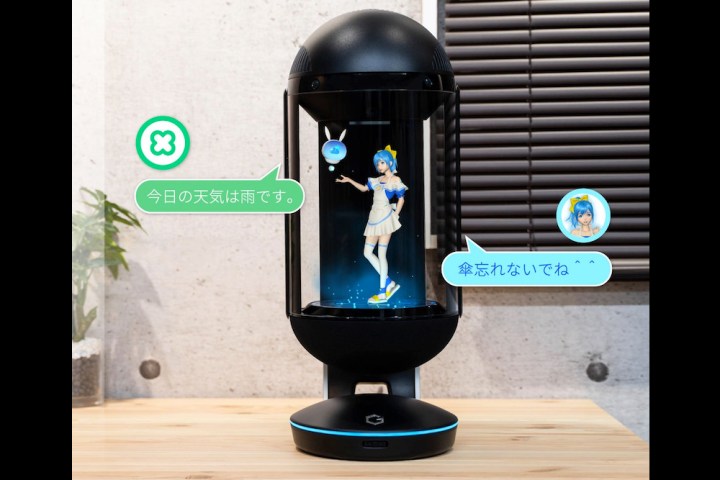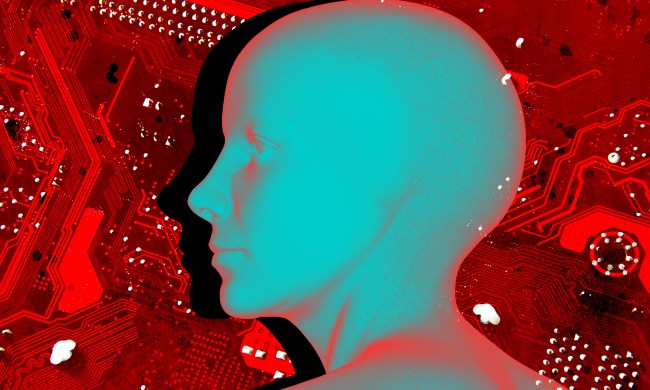
The concept of living at home with an intelligent digital character is almost a reality, due to a partnership between Line, the popular messaging app, and Gatebox, a cult Japanese artificial intelligence (A.I.) company. Line supplies its Clova A.I. platform to Gatebox, where it will be integrated into the production version of its smart home hardware. Think of Gatebox as a little like Amazon’s Alexa, but the difference is, Gatebox has a friendly, interactive digital character inside, ready to communicate naturally with you both in and out of your home. It’s a big step beyond the basic interactions we have with Alexa or Google Assistant.
While the partnership between these two companies had been revealed when Line acquired Gatebox in early 2018, the result of how Clova will work with Gatebox has now been demonstrated at the Line Conference currently taking place in Japan. Clova is Line’s A.I. platform that powers its smart home speakers, operating in the same way as Alexa. The integration with Gatebox brings A.I. smarts to the charming digital character living inside the sci-fi hardware.
Take a look at the video above, and pay attention to the incredibly natural voice synthesis first, then how Gatebox uses Clova’s A.I. system to carry out simple requests like telling you the weather. Interestingly, it’s not Gatebox’s character — Azuma Hikari — that relays Clova’s information, but a second character that hovers next to her. What’s really exciting is that Hikari interacts with Clova, and adds friendly conversational aspects to the presumably shared information. You and Hikari communicate with a third entity, rather than Clova’s more robotic skills dampening Hikari’s own natural demeanor.
The integration between the two is highly convincing, and the voice synthesis natural enough that speaking to Gatebox’s character will feel normal after getting over any initial self-consciousness. The potential for Gatebox to help those living alone is huge, and perfectly fits with Line’s ambition to make lovable artificially intelligent characters. Beyond its usefulness as a companion, the prospect of an interactive friend is likely enticing to any tech and sci-fi fan.
What can Clova do already? Clova’s skills include the weather, telling you the news report, playing music, and more. There is also a third-party developer center where additional skills can be built for the Clova platform. Gatebox itself is also launching a partner program for businesses to use Gatebox, and the press release suggests it hopes customized versions of the system will be used outside the home, much like SoftBank’s Pepper robot is seen in retail and business environments in Japan and around the world.
Gatebox will be released in Japan before the end of the year, and it has a 150,000 yen price tag attached — about $1,390 — plus a 1,500 yen ($14) monthly subscription for Hikari too. Clova and Hikari-chan only speak Japanese at the moment, so an international launch is unlikely in the near future.



